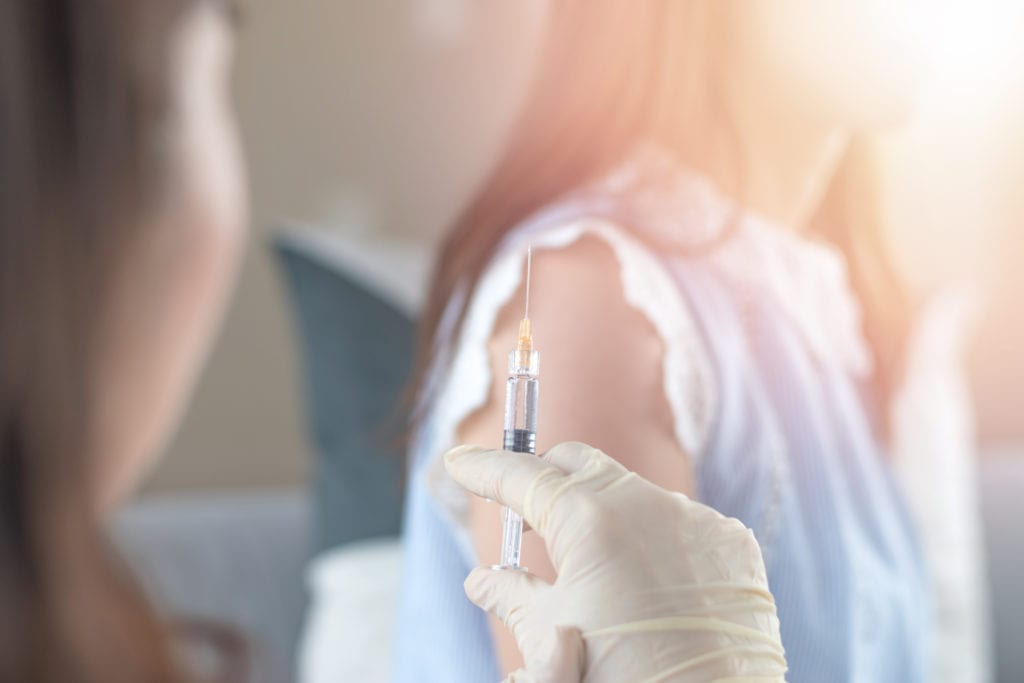If you’re a first time mother, chances are you’re still unsure about the importance of vaccines during pregnancy.
While it’s always important to consult with your healthcare provider about questions you have throughout each trimester, recent reports from the U.S. Centers for Disease Control and Prevention (CDC) reveal that vaccinations – particularly for conditions like whooping cough – could be critical during pregnancy in order to preserve both your health and that of your baby.
According to the CDC, more than 41,000 cases of whooping cough were reported in 2012, making it the highest level of diagnoses of the condition in more than 50 years. While the number of cases has been slowly declining since that peak in 2012, there were 32,971 diagnoses made in 2014. We can all agree, these numbers are too high for a potentially deadly disease that was all about eradicated decades ago.
The condition, which is characterized by rapid and intense cough, is highly infectious and resulted in the deaths of 20 babies under the age of 3 months back in 2012. The disease can have fatal consequences and the CDC urges women who are pregnant to get the vaccine if they haven’t already done so.
Read more:
Needle phobic? Here’s how to survive pregnancy
In addition to whooping cough vaccination, the CDC advises that women receive shots to protect them against tetanus, diphtheria and pertussis, or Tdap, between weeks 27 and 36 of their terms.
While moms-to-be are likely busy getting ready for baby during this time, it’s important to factor in vaccinations, as it can be an essential aspect of maintaining one’s health before giving birth.
For women who are anxious at the idea of getting vaccinations, bringing along a partner, friend or relative can be a great way to ease tension and have a better overall experience. Best of all, this can help people feel included in a pregnancy and strengthen the bond shared.
Once babies are born, they are also vaccinated for Tdap in a five-dose series that starts in infancy and ends when they are about 5 years old. As children grow, other immunizations can be recommended by healthcare providers.
